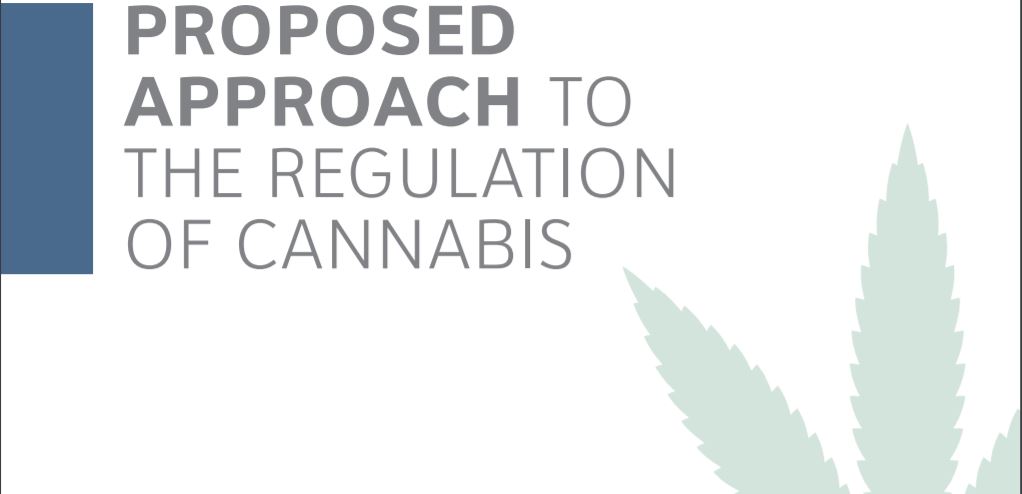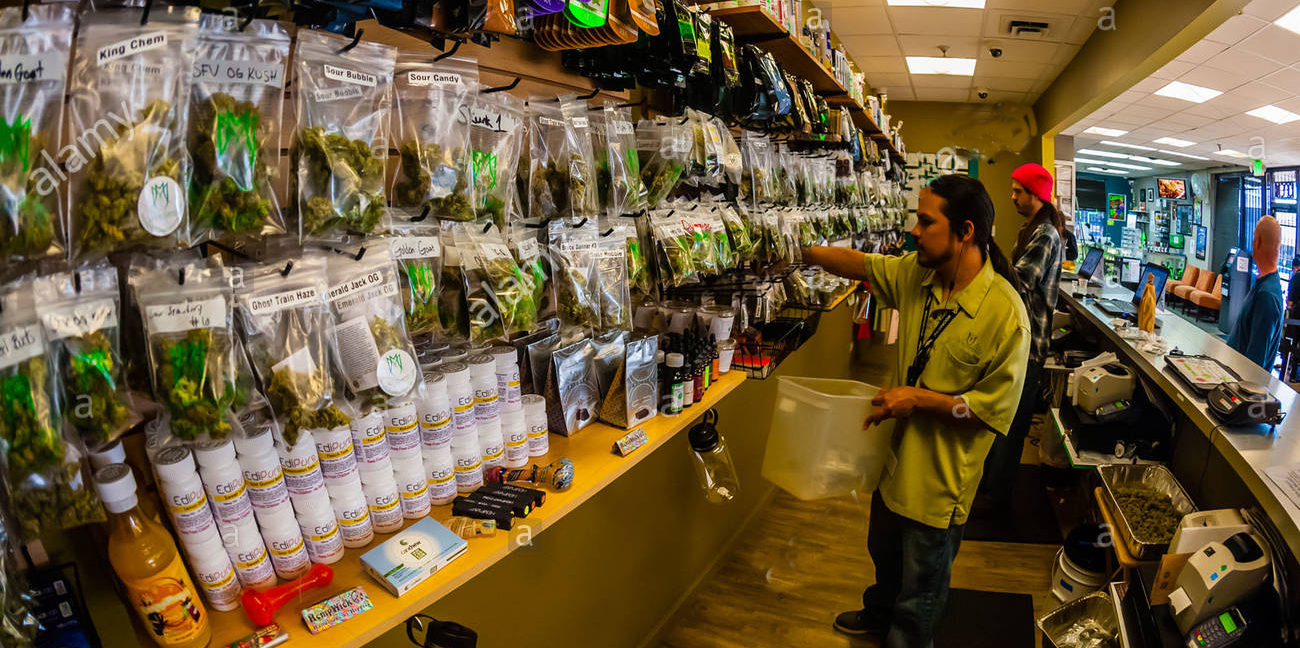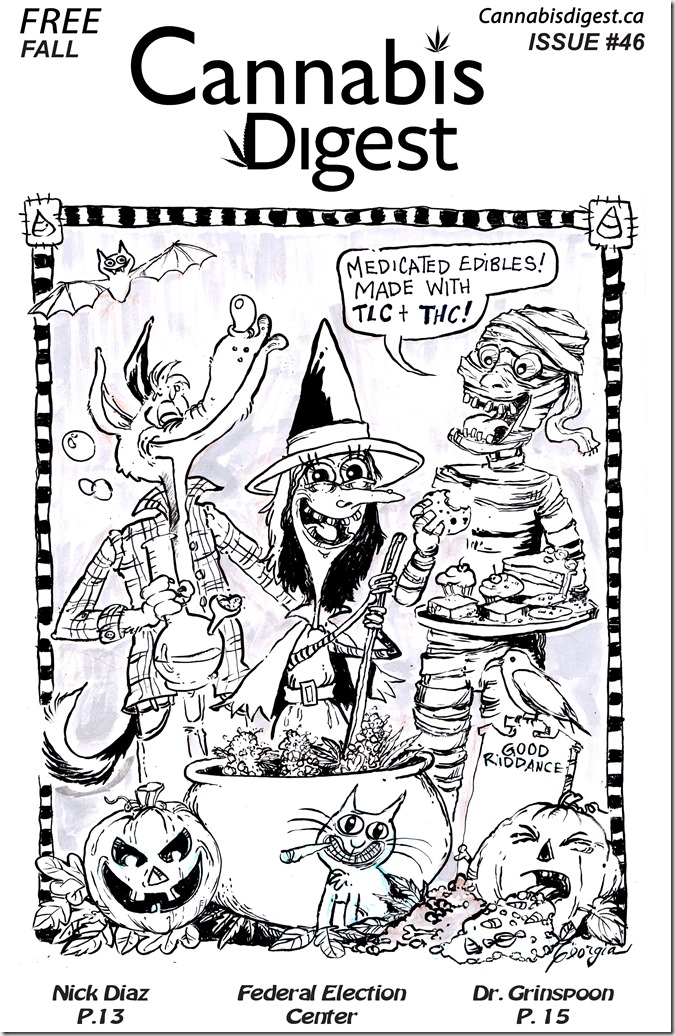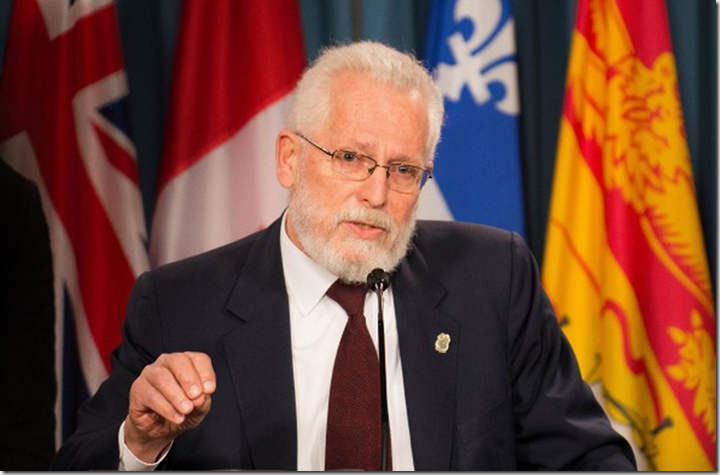(The Questionnaire is only available until January 20th. Have your say right away!)
By Ted Smith and Clea Maclean
Health Canada is seeking your feedback on the Proposed Approach to the Regulation of Cannabis. This consultation builds on the extensive consultations conducted by the Task Force on Cannabis Legalization and Regulation. The consultation is guided by the Consultation Paper. You are invited to read the paper and complete this questionnaire.
CLICK HERE TO READ THE CONSULTATION PAPER
CLICK HERE TO START THE QUESTIONNAIRE

- It is critical that legislation to legalize cannabis attempt to include all aspects of the current illegal industry as possible. This can only be done by creating opportunities for small scale growers and processors to legally operate. The VCBC has relied on small scale operations that have been developing strains and products that best serve the needs of patients with debilitating health problems. Exclusion of current small scale operations will only serve to ensure a thriving “black market”.
- Using gross revenue as a means of drawing the line between small and large cultivators seems the best route for several reasons. We propose that gross revenue under $500,000 be considered adequate to be considered a small cultivator. Using revenue is a precise tool, rather than the other options such as plant numbers, size of area and total production. Limiting plant numbers, area under cultivation or total production will potentially force growers to stop producing certain strains of cannabis. This is especially true with large plants that take a long time to mature, which is unfair to patients that benefit from these particular varieties. Likewise limiting total production could cause unintended results that increase costs and discourage genetic diversity.
- There is little question that the difference between a micro-processor and a large scale one should be measured in gross revenue. We propose $500,000 as an adequate point to draw the line between a micro-processor and a large one. Using inventory as a measurement is very problematic given the wide range of products these processors will be creating. Likewise trying to create a way to measure total production without simply using gross revenue would be very hard, as the government would need to create limits for each potential individual product.
- Given what we and our growers have experienced over the last 22 years, it is clear that these basic security requirements proposed for small cultivators will be sufficient to protect public safety. All companies involved in the production and sale of cannabis have great incentive to ensure protection against theft and diversion.
- Requiring high level security clearance is useless, as any organized criminal organization that wanted to engage in the legal cannabis industry could easily do so using an accomplice with a clean record.
- For many reasons requiring such strict security measures is counter-productive and in our club’s circumstances even devastating. By refusing to allow individuals with a record of trafficking or large scale production the ability to obtain a license to cultivate or process cannabis, the government would be forcing many to remain illegally operating despite their wishes to do everything possible to comply with the new laws. This sweeping measure would exclude the club’s founder, Ted Smith, who has been convicted of trafficking THC and cannabis after begin arrested at public giveaways.
- There are many problems with the proposed limits on the types of products that will be initially allowed in this system, especially for patients who have been relying on many of these soon-to-be-prohibited-again products to maintain their health for years. Maybe the government needs to read the Smith decision from the Supreme Court of Canada again before considering any arbitrary laws restricting cannabis products. In case you have forgotten, it was our organization that brought that case to Ottawa.
- Patients have been coming to our club, and others like it, for years looking for strong pain medication. By limiting the THC levels, Health Canada is forcing patients to either consume much larger amounts of vegetable oil than necessary to achieve the desired effect, if they can afford it. Given the intense opiate crisis affecting the country, it seems strange the government wants to restrict THC levels in cannabis products given how much safer the herb and its derivatives are. Patients struggling with cancer and other serious medical problems need affordable access to the strongest cannabis medicines possible.
- The proposals for packaging and labeling seem adequate.
- We are utterly dismayed at the complete disregard for patients in these proposed regulations. The meager changes proposed provide no incentives for licensed distributors to provide special strains or products that only patients would require. By restricting the medical cannabis system to mail order, the government is making it extremely difficult for the sick, elderly and poor to access the right cannabis medicines. With LPs itching to profit from recreational sales, there are no incentives for research into the medical benefits of cannabis included in these proposals. It is not clear if patients will receive any tax breaks, making it appear the only real benefit in legalization for patients is that they will no longer be automatically considered a criminal when found using cannabis in public. There is a myriad of problems for patients with these regulations and we will attempt to address most of them in our answer to question #12
- Research and testing new drugs and new products is an important part of regulating health care products. However, in this case we are talking about a drug that has been studied extensively for decades and has been available illegally in compassion club’s for decades. Patients have been safely using crafted cannabis products through dispensaries like ours for years and it would be very unfair for them to lose access to these medicines ( for years ) until all of the testing is completed. Legalization should not force patients back to the black market. Products like suppositories, lozenges or massage oils mixed with other herbs have been supplied by our club to patients for years. These products should be granted extra time to complete all required studies while still being sold to patients. Ironically these proposals will encourage a prolific black market and have the reverse effect the government claims to be looking for. It is also hard to understand why the government thinks restricting access to health products containing cannabis would also deter access by youth.
- These answers have been written by representatives of the Victoria Cannabis Buyers Club, a compassion club that has been in operation in Victoria, BC since January 1996. The club’s mandate has been to help people suffering with serious medical problems gain access to a wide variety of topical and edible options. The VCBC has had its facilities raided 5 times by the police, with all 15 trafficking charges that were laid being beaten in court, including the unanimous Supreme Court of Canada decision of 2015 in the case of former head baker Owen Smith.
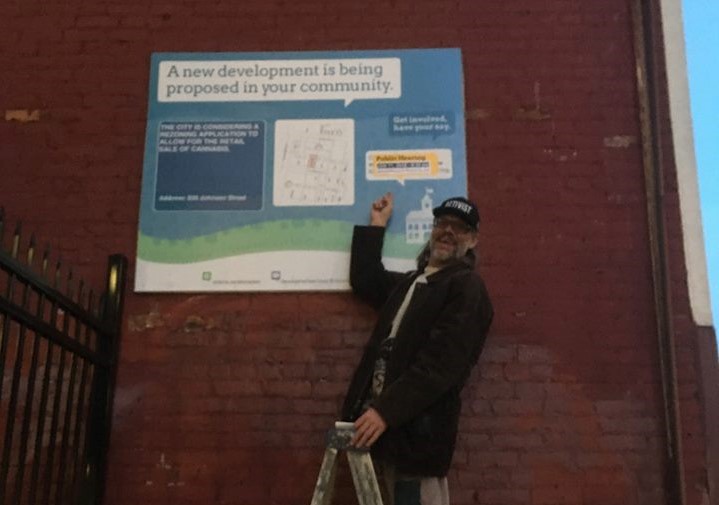 Now with over 6,500 members, our club has recently received rezoning from the city towards obtaining a business license. This process began before the federal government started its plans and everyone has hoped that what has started on the ground level in communities like Victoria will become a part of the future legal system. Despite the temptation of earning profit through sales to adults, our organization is content working strictly with patients through these changes.
Now with over 6,500 members, our club has recently received rezoning from the city towards obtaining a business license. This process began before the federal government started its plans and everyone has hoped that what has started on the ground level in communities like Victoria will become a part of the future legal system. Despite the temptation of earning profit through sales to adults, our organization is content working strictly with patients through these changes.
Before we begin to sound totally negative, we want to encourage the government to create a seperate license for small cultivators and processors. We have worked exclusively with small craft growers for decades and have maintained a kitchen to provide medicine to our patients.
We hope that many of our growers and our kitchen will soon receive licenses to operate legally.
These strict regulations make it impossible for the VCBC to participate by refusing to grant a license to anyone with a record of trafficking cannabis, as the club’s founder and current general manager has been convicted of trafficking for sharing cookies and joints at public rallies. Excluding people who have had a record for trafficking or growing large amounts of cannabis is counterproductive if there is any hope of converting the industry from the black market into a legal one. Instead of convincing those most committed to the herb to become legit, these regulations would force them to continue to break the law if they want to stay in the cannabis field.
Restricting the products available for sale would be life-threatening to some of our patients and an unhealthy inconvenience to many others. It is counterintuitive to limit THC content when there is a national opiate crisis due to doctors having few safe choices to prescribe for pain medication. At the same time this new regime will have the effect of threatening doctors with having their licence revoked for prescribing safe and effective doses of THC over the restrictive limits placed by Health Canada. We will not participate in a program that puts patients at risk for no reason other than fear and uncertainty.

We find the proposed act very detrimental to the VCBC’s members, as well as members of other established compassion clubs. We will continue to support, educate and supply patients who rely heavily on cannabis medicines, until we become a part of the system or the government does a better job for patients and we go out of business. Sadly, this version of legalization appears more like Prohibition 2.0.
The new proposed act heavily supports big industry, even at the cost of destroying established communities of patients managing their health in a sustainable fashion. Absolutely no attempt is being made to insure that these compassion clubs remain functioning and supported by government.
The social cost of removing a system that clearly brings medical and emotional support to communities of people who have been or easily could be displaced, is unjustifiable. Any reasonable form of legalization would create special products and services for patients with lower taxes than recreational consumers pay.
We urge the federal and provincial governments to reconsider their approach to medical cannabis. The gold standard for legalization should include providing patients with more options, lower taxes, free safe consumption sites and other benefits that recreational consumers to do not require access to. It is very disappointing to see how problematic this legalization scheme appears to be for patients that have relied on our services for years.

